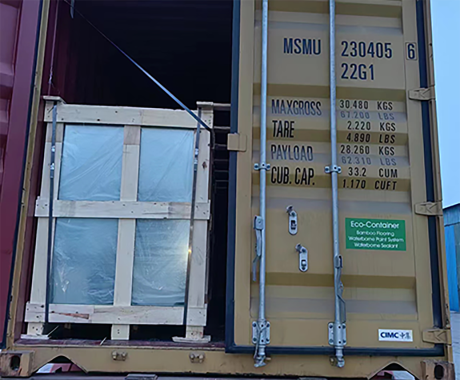

Understanding 8mm Float Glass Properties, Applications, and Benefits
8mm float glass is a popular choice in the manufacturing industry, known for its clarity, durability, and suitability for a variety of applications. This article aims to explore the properties, manufacturing processes, applications, and benefits of 8mm float glass, providing insights for architects, builders, and homeowners alike.
What is Float Glass?
Float glass is a type of glass that is produced through a process involving the floating of molten glass on top of molten tin. This method results in a sheet of glass that is perfectly flat and uniform in thickness, making it ideal for various applications, from architecture to automotive uses. The standard thickness of float glass can range from as thin as 2mm to as thick as 19mm or more. Among these, 8mm float glass provides a balance between strength and weight, catering to specific construction and design needs.
Properties of 8mm Float Glass
1. Clarity and Transparency 8mm float glass offers excellent optical clarity. It allows for maximum light transmission while minimizing distortion, making it suitable for applications where visual aesthetics are essential.
2. Durability Objects made from 8mm float glass are robust and can withstand various environmental conditions. The thickness contributes to its strength, ensuring it can handle physical impacts better than thinner glass options.
3. Safety Float glass can be treated to meet safety standards. While 8mm float glass itself is not considered safety glass, it can be tempered or laminated to provide enhanced safety features, reducing the risk of shattering.
4. Customization Manufacturers can produce 8mm float glass in various sizes and can also apply different surface treatments, including tinting, coatings, or patterns, to meet specific design needs.
Manufacturing Process
The manufacturing of 8mm float glass follows a precise method
. It begins with melting raw materials, primarily silica sand, soda ash, and limestone, along with other additives, in a furnace at temperatures exceeding 1600 degrees Celsius. This molten glass is then carefully poured onto a bed of molten tin, where it spreads out and forms a flat surface.Once it reaches the desired thickness, the glass is cooled gradually in a controlled environment to relieve internal stresses. The final product undergoes inspection and quality control to ensure it meets industry standards before being cut into required dimensions.
Applications of 8mm Float Glass

8mm float glass finds its way into various applications across multiple industries
1. Architecture and Construction One of the primary uses of 8mm float glass is in building facades, windows, and doors. Its clarity and sturdiness make it a favorable choice for both residential and commercial projects.
2. Interior Design In interior design, 8mm float glass is used in partitions, mirrors, and tabletops. Its aesthetic appeal adds elegance to living and working spaces.
3. Automotive Though not as common in the automotive sector as tempered or laminated glass, 8mm float glass may be used in specific vehicle applications where conventional glass is acceptable.
4. Furniture Many furniture pieces, including shelves and coffee tables, incorporate 8mm float glass, giving a modern touch to the overall design.
Benefits of 8mm Float Glass
The benefits of using 8mm float glass are numerous
- Aesthetic Appeal The glass provides a sleek and modern appearance, enhancing the visual appeal of any space.
- Natural Light Its transparency allows for natural light to flow through, reducing the need for artificial lighting during the day.
- Versatility 8mm float glass can be utilized in various settings, from residential homes to commercial buildings, making it a highly adaptable material.
- Customization Options The ability to customize size, shape, and surface treatment means that designers can create unique and functional spaces.
Conclusion
8mm float glass is an exceptional material that combines beauty with functionality. Its properties make it ideal for a wide array of applications, meeting the needs of both modern architecture and interior design. As demands for eco-friendly and aesthetically pleasing materials increase, 8mm float glass stands out as a viable solution for many industries, promoting a blend of elegance and resilience in the built environment. Whether you are an architect, a builder, or a homeowner, understanding the benefits and applications of 8mm float glass can greatly enhance your project outcomes.